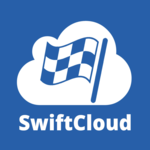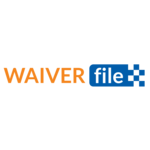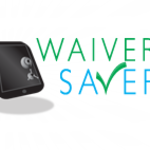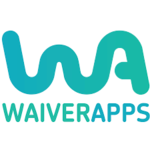Yes, waiver software can be accessed from various devices and platforms. Most waiver software is cloud-based, which means it can be accessed via a web browser on any device with an internet connection. This covers PCs, laptops, tablets, and smartphones. Additionally, some waiver software provides mobile apps for iOS and Android devices, making it even easier to access and sign waivers on the move.
List of Best Waiver Software
Rezdy, the top tour operator solution that simplifies bookings and automates tasks. Our user-friendly software enables you to effortlessly manage reservations on any device, ensuring a seamless online experience for your clients. With Rezdy, increase...Read More Rezdy
Checkfront Tour Operator Software solution for effectively managing and growing your business. This user-friendly platform simplifies the booking process and provides valuable insights on your reservations. Equipped with comprehensive features, Check...Read More Checkfront
ROLLER Software is a venue management tool. Our all-in-one platform simplifies operations, boosts sales, and enhances guest experiences. Our seamless online and in-venue ticketing, powerful business management tools, and expert support help attractio...Read More ROLLER Software
Swift Cloud is a CRM platform designed specifically for small businesses. With a range of features including e-Sign, payment processing, scheduling, and marketing automation, Swift Cloud streamlines operations and elevates client management. Its high...Read More Swift Cloud
ePACT is the solution designed to streamline emergency and health form management for community organizations. Our secure and paperless platform simplifies data access and communication, providing peace of mind for both staff and families. Say farewe...Read More ePACT
Smartwaiver solution for gathering waivers effortlessly. This software allows you to convert waivers into digital forms quickly and access them from any device at any time. With a secure database to store all your documents, managing waivers has neve...Read More Smartwaiver
WaiverFile solution for managing your waivers. Our innovative software simplifies the organization of waivers by event, making it effortless to keep track of signed forms for birthdays, gym classes, and more. As guests complete the forms, their names...Read More WaiverFile
WaiverForever is a digital waiver solution. Say goodbye to paper-based waivers with our innovative platform that seamlessly transforms them into electronic documents. Our user-friendly interface allows for easy online signing and secure cloud storage...Read More WaiverForever
Playpass is the premier sports league software that streamlines registration for your clients. Our user-friendly platform allows you to easily create and promote an event calendar for your websites upcoming sports events. With just a click, you can e...Read More Playpass
Wherewolf is a and secure cloud-based solution that simplifies guest record management. It comes equipped with various analytical tools to help businesses gain valuable insights and create effective strategies. With its guest management feature, chec...Read More Wherewolf
Waiver Saver the waiver solution that is budget-friendly and perfect for professionals from all industries. Our cutting-edge application simplifies data collection and ensures effective communication with your clients. We strive to make our advanced...Read More Waiver Saver
Party Center Software – solution for family entertainment centers. Our comprehensive platform streamlines booking, advertising, and management for a hassle-free experience. Enjoy features like online reservations, electronic waivers, and integ...Read More Party Center Software
WaiverSign, formerly known as WaiverApps, has evolved into a comprehensive waiver solution. Our platform offers secure online signing, personalized branding, and easy access to signed documents. Say goodbye to hassle and focus on what you love with W...Read More WaiverApps
Learn More About Waiver Software
- What Is Waiver Software?
- What Are The Recent Trends In Waiver Software?
- Benefits Of Using Waiver Software
- Important Factors To Consider While Purchasing Waiver Software?
- What Are The Key Features To Look For In Waiver Software?
- Why Do Businesses Need Waiver Software?
- How Much Time Is Required To Implement Waiver Software?
- What Is The Level Of Customization Available In Waiver Software?
- Which Industries Can Benefit The Most From Waiver Software?
- Conclusion
What Is Waiver Software?
Waiver software is a digital tool that helps businesses and organizations create and manage waivers and release forms. These waivers are a legal document that releases a person or company from liability for any potential accidents or injuries that may occur during a specific activity or event. This software streamlines the process of creating and managing waivers, eliminating the need for paper forms and manual record-keeping.
It offers a secure and organized platform to collect, store, and track waivers easily. Waiver software is a valuable solution for businesses in industries like fitness, recreation, travel, and events where waivers are a crucial part of their operations. It simplifies the waiver signing process for customers, improves the workflow for businesses, and minimizes the risk of liability.
This software usually comes with customizable templates that allow businesses to create waivers tailored to their specific needs and requirements. It also automates the process of collecting digital signatures, making it fast and convenient for both businesses and customers. Furthermore, waiver software offers advanced features like electronic storage, data encryption, and backup, ensuring the security and confidentiality of waivers and customer information.
It also provides real-time analytics and reporting, giving businesses insights into customers' waiver signing trends and compliance. Overall, waiver software is a valuable investment for businesses looking to streamline their waiver process, reduce paperwork, and improve customer experience. Its user-friendly interface, customizable templates, and advanced features make it a must-have tool for any business that requires waivers as part of their operations.
What Are The Recent Trends In Waiver Software?
Waiver software has grown in popularity among businesses and organizations wishing to manage legal waivers and liability forms more efficiently. The demand for creative waiver software has increased dramatically as digital technology has advanced and contactless solutions have become more prevalent.
Buyers should be aware of the following current trends in the waiver software industry:
1. Cloud-Based Solutions: One of the most significant trends in waiver software is the transition to cloud-based solutions. This enables businesses to securely keep and access waiver forms in the cloud, removing the need for physical storage and lowering the risk of lost or damaged documents. Cloud-based solutions have the extra benefit of being accessible from any location with an internet connection, making it easier to handle waivers for remote events or activities.
2. Customization And Integrations: Many waiver software suppliers now provide customized solutions to match their clients' individual requirements. This includes the opportunity to integrate company logos, colors, and branding on waiver forms. Furthermore, companies offer interfaces with other software systems such as event management, CRM, and POS, making the waiver process easier and more efficient for organizations.
3. Mobile-Friendly: With the growing use of smartphones and tablets, waiver software has evolved to be mobile-friendly. This enables organizations to collect waivers digitally via a mobile device, making it ideal for on-the-go activities or events. This also eliminates the need to print and store paper waivers, which reduces paper waste and promotes a more environmentally friendly solution.
4. Electronic Signatures: Over the last few years, digital signature technology has evolved and gained popularity. Waiver software now allows users to sign papers electronically, expediting the waiver process and removing the need for personal contact.
5. Data Collection And Analysis: Another popular feature in waiver software is the ability to collect and analyze data from waiver forms. This gives organizations vital information into their clients, allowing them to make better decisions and improve their services or products.
Benefits Of Using Waiver Software
Waiver software is a useful tool for businesses and organizations that use signed waivers to reduce liability and ensure compliance. This sort of software simplifies and automates the process of establishing, storing, and managing digital waivers, providing several advantages to both businesses and customers. One of the key benefits of waiver software is improved efficiency.
The usual process of signing paper waivers is time consuming and error-prone. Waiver software allows clients to easily examine and sign waivers digitally, reducing the need for laborious paperwork. This saves businesses time while also providing customers with a more simplified and modern experience. Waiver software improves both productivity and security.
Digital waivers are saved in a secure database and cannot be misplaced or altered. This gives businesses peace of mind knowing that all signed releases are kept in a central area and are immediately accessible when needed. Another advantage of using waiver software is the ability to create bespoke waiver templates. Businesses can modify their waivers to incorporate industry-specific words and phrasing, lowering the chance of legal complications.
This level of personalization also enables a more professional and polished image, which can enhance the consumer experience. Furthermore, waiver software facilitates data collection and analysis. With typical paper waivers, it might be difficult to collect and analyze data for reporting purposes. Digital waivers enable organizations to quickly collect and analyze data such as consumer demographics, waiver acceptance rates, and waiver completion times.
This information can then be used to make data-driven decisions that will improve operations and the overall customer experience. Finally, waiver software is a more environmentally friendly alternative than paper waivers. Businesses that eliminate the need to print and store paper waivers can drastically lower their carbon footprint while also demonstrating their commitment to sustainability.
Important Factors To Consider While Purchasing Waiver Software?
As technology advances, digital waivers have become a popular option for many organizations trying to speed the liability waiver process. With the growing need for waiver software, it can be difficult for customers to navigate the different solutions available. When contemplating purchasing waiver software, there are a few key elements to consider to guarantee you make the best option for your company. Before you begin the purchasing process, review your requirements and determine how the software will fit into your existing workflow.
Here are some important considerations to consider while selecting waiver software.
1. Usability: Both your employees and consumers should find the product easy to use. A convoluted and confusing interface might result in errors and irritation.
2. Customization Options: Look for software that allows you to tailor your waivers to meet your individual business requirements. This can involve adding your logo, custom fields, and words that are consistent with your brand and regulatory needs.
3. Integration With Your Current System: If you currently have a CRM or booking system, search for waiver software that works flawlessly with it. This saves time and prevents data from being entered twice.
4. Data Protection: When sensitive consumer information is acquired, it is critical to select software that emphasizes data protection. To protect consumer data, ensure that the software is encrypted and that the servers are secure.
5. Mobile Compatibility: In today's digital age, many customers prefer to sign waivers using their smartphones. Make sure the software is mobile-friendly and compatible with both iOS and Android smartphones.
6. Customer Support: Think about the level of support provided by the software supplier. Will they be available to help with any technological problems or inquiries you may have?
7. Pricing: Consider the software's initial and continuing expenditures. Some providers charge a one-time cost, while others may charge a fee for each waiver or monthly membership. Choose a price model that fits your budget and needs.
8. Reviews And Recommendations: Before making a selection, conduct research and read feedback from other organizations that have utilized the software. This will offer you a greater knowledge of their experiences, allowing you to make an informed decision.
What Are The Key Features To Look For In Waiver Software?
When it comes to selecting the best Waiver Software for your business, it is critical to consider a variety of aspects in order to make an informed decision.
Here are some crucial things to consider when considering alternative options:
1. Customizable Waiver Templates: Look for software that enables you to generate and customize waiver templates based on your specific business requirements. This will save you time and effort from having to create waivers for each activity or service separately.
2. Electronic Signature: One of the primary advantages of utilizing waiver software is the ability to collect electronic signatures. To speed the waiver procedure, ensure that the software includes a safe and legally binding signature solution.
3. User-Friendly Interface: Choose software with an easy-to-use and understandable interface. This will prevent you and your customers from any confusion or troubles with the waiver process.
4. Payment System Integration: If your company provides paid services or activities, you should find waiver software that works with your payment system. This will make the payment process for your clients more streamlined and hassle-free.
5. Automated Waiver Tracking: Select waiver software that automatically tracks completed and pending waivers. This can help you stay organized and keep proper waiver records, avoiding potential legal difficulties.
6. Data Management And Security: When choosing a waiver software, security should be the main priority. Look for features like data encryption and secure cloud storage to protect your clients' personal information.
7. Reporting And Analytics: Having access to data and analytics can help you gain useful insights into your organization and make better decisions. Look for waiver software that has reporting and analytics tools to track waiver completion rates and find patterns or trends.
Why Do Businesses Need Waiver Software?
Waiver software has become an indispensable tool for firms in a variety of industries. This program simplifies the process of obtaining and managing waivers from consumers, clients, and employees. It eliminates the inconvenience and potential inaccuracies associated with paper waivers, making it a more efficient and safe solution for organizations.
Here are several compelling reasons why organizations should invest in waiver software.
1. Simplifies The Waiver Collection Process: Traditionally, waivers were collected using paper forms, which could be time-consuming and error-prone. Waiver software allows organizations to simply create digital waivers and collect them electronically. This saves time, lowers paperwork, and ensures accurate data entry.
2. Improves Data security: Paper waivers are vulnerable to being misplaced, damaged, or stolen. This puts firms at risk of losing critical customer information and even incurring legal ramifications. Waiver software includes security features such as encryption and secure servers to ensure the safety of confidential data.
3. Improves Efficiency: Waiver software automates the entire waiver process, including creation, collection, storage, and retrieval. This saves firms time and effort from having to manually enter and organize data. It also provides quick and easy access to waivers when needed.
4. Protects Businesses From Legal Issues: In many industries, having a signed release is essential for shielding organizations from legal liability. Waiver software guarantees that all relevant fields are filled out, and that clients have acknowledged and consented to the terms of the waiver. This can help you avoid potential litigation and expensive legal bills.
5. Maintains Compliance With Regulations: Certain industries, such as healthcare and banking, have stringent standards governing data privacy and security. Waiver software enables firms to comply with these rules by providing a secure and orderly manner to maintain client data.
How Much Time Is Required To Implement Waiver Software?
The implementation timeline is an important issue for any organization intending to engage in waiver software. The time necessary to implement waiver software will vary according to the program and the complexity of your company requirements. However, a normal estimate for implementation time ranges from a few days to a few weeks. First and foremost, it's crucial to understand that implementing waiver software requires a joint effort between your company and the software vendor.
This means that the better planned and organized your company is, the easier and faster the implementation process will be. Typically, the first stage of deployment entails configuring the software and inserting your company information, such as branding, legal disclaimers, and particular waiver templates. This can take a day or two, depending on the volume of data and customization required. Next, you must address the software's interaction with your business operations and systems.
This includes creating user accounts, granting rights, and training your employees on how to use the product. Depending on the size of your company and the number of users, this process could take a few days to a week. Testing and troubleshooting are also critical aspects of implementation to guarantee that the software is functional and meets your company's requirements. This could take another week or two, depending on the intricacy of your business operations and any technical challenges that develop.
What Is The Level Of Customization Available In Waiver Software?
When it comes to waiver software, one of the most important considerations is the level of customisation. This refers to the software's capacity to be customized to meet your unique business goals and requirements. The more configurable the software, the greater your flexibility and control over its features and functions. In most cases, waiver software provides a number of customized options, including branding, layout, and content.
This enables organizations to develop waivers that align with their corporate identity and messaging. Additionally, businesses can select from a variety of waiver templates or construct their own from scratch, giving them complete control over the style and layout. Another significant component of waiver software customization is the option to add and remove fields, checkboxes, and questions from the waiver form.
This enables organizations to collect specialized information related to their operations and legal needs. Some software also allows you to construct conditional fields, which means that certain questions or information will only surface if the user answers a prior question. Furthermore, waiver software allows for extensive customization of the signing and filing processes. Some software lets businesses to choose the manner of signing, such as e-signature or digital signature, as well as include unique terms and conditions that users must agree to before to signing the waiver.
Which Industries Can Benefit The Most From Waiver Software?
Waiver software is a valuable tool for many businesses since it simplifies the process of getting waivers and releases, lowering the chance of legal conflicts. It eliminates the need for paper waivers, resulting in a highly efficient and time-saving solution.
Let's take a closer look at which industries will gain the most from waiver software.
1. Outdoor Recreation And Sports Industry: Adventure parks, ski resorts, and sports facilities all deal with a large number of clients on a daily basis. Waiver software makes it easier to get waivers from participants while ensuring that all relevant information is captured accurately and securely. This reduces the risk of liability in the event of any accidents or injuries during the activities.
2. Event Planning And Management Industry: Organizers of events and conferences frequently confront the onerous challenge of gathering waivers and attendance data from large numbers of registrants. Waiver software simplifies this procedure by allowing organizers to issue digital waivers and gather signatures prior to the event, removing the need for long lineups and paper waivers at the registration desk.
3. Fitness And Health Industry: The use of waiver software can assist gyms, fitness centers, and health clubs significantly. It enables them to conveniently track and manage member waivers, lowering the risk of liability in the event of an injury. It also allows them to maintain a secure database of member information, which makes it easier to transmit important updates and notifications.
4. Rental And Equipment Industry: For firms that rent out equipment such as bikes, skis, or watercraft, waivers are an essential part of the rental process. Waiver software enables rental companies to create waivers tailored to each type of equipment, making it easier to collect information and track rental agreements. This protects them from potential harm or liability difficulties.
5. Education And Childcare Industry: Before children can engage in activities at schools, summer camps, and other childcare facilities, their parents or guardians must sign waivers. With waiver software, these businesses can quickly transmit waivers digitally, track who signed them, and securely store the data. This guarantees that all necessary waivers are completed, lowering the danger of legal ramifications.
Conclusion
Finally, selecting the correct waiver software for your organization can significantly streamline operations while also protecting your company from legal risks. When making a decision, you should examine variables such as simplicity of use, customization possibilities, and integration capabilities. Furthermore, it is critical to choose a recognized provider with a proven track record of providing dependable and secure solutions.
Before making your purchase, carefully consider the features and pricing of various waiver software choices. Consider your company's specific needs and budget, as well as any future scaling or expansion opportunities. Once you've chosen an appropriate waiver software, you must properly train your employees on how to use it, as well as review and update your policies and waivers on a regular basis to ensure compliance with new laws and regulations.
By researching and investing in the best waiver software, you may save time, reduce risks, and increase client satisfaction for your organization. We hope this buyer's guide has been helpful in your decision-making process. To ensure a successful waiver software deployment, always consider security, usability, and scalability.
Waiver Software FAQ's
Can Waiver Software Be Accessed Across Multiple Devices And Platforms?
Is Waiver Software Future-Proof And Adaptable To Emerging Technologies Like AI, Blockchain Or IoT?
Yes, waiver software is always evolving to keep up with the latest new technologies such as artificial intelligence, blockchain, and Internet of Things. In reality, several waiver software providers are currently utilizing these technologies to improve their services and deliver more effective and secure solutions to enterprises. As technology advances, waiver software will adapt and stay ahead of the curve, giving it a future-proof solution for enterprises of all sizes.
Is There A Free Trial Offered To Assess Waiver Software Before Committing?
Yes, most waiver software suppliers provide a free trial period so that interested users can evaluate the platform before committing. This helps customers to become comfortable with the software's features, interface, and overall functionality. Free trials normally last 14 to 30 days and include full access to all features. Users may make an informed decision based on their trial experience.
Does Waiver Software Offer Data Security Features And Meet Regulatory Compliance Standards?
Yes, waiver software includes strong data security measures to safeguard sensitive information. Data is secured through the use of encryption techniques and secure servers. It also has options for multi-factor authentication and access controls to improve security. Furthermore, waiver software is built to fulfill regulatory compliance standards such as HIPAA, GDPR, and CCPA, making it a secure and dependable solution for client data management.
Can Waiver Software Integrate Seamlessly With Existing Tools And Platforms?
Yes, most waiver software integrates smoothly with existing tools and platforms. This makes the process more efficient and simplified, since data can be easily shared between systems without the need for manual data entry. Some waiver software even has pre-built connectors with key platforms like CRM systems and payment processors. This integration also improves data accuracy and decreases the likelihood of errors.















